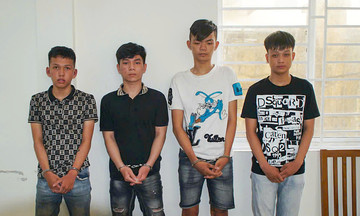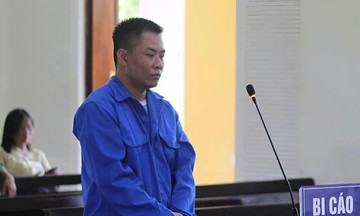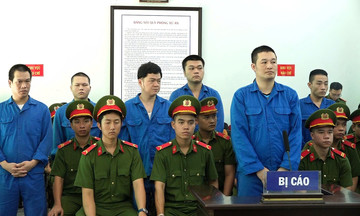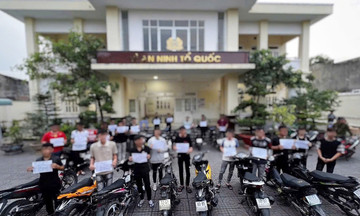The Hanoi People's Court recently issued an appellate ruling in a civil case concerning shared and private ownership within a condominium building. The plaintiff is Ha Do Group Joint Stock Company. The defendant is the Residents' Committee of Ha Do Park View Condominium in Cau Giay district.
According to the plaintiff, residents began occupying the 34-story building in 2015. The motorbike parking area on the basement level covers 1,800 m2. The two basement levels designated for car parking, spanning 4,200 m2, belong to the company and were not included in the apartment sale prices. This asset, retained by the company and not sold, is reflected in the audited financial statements.
The company's private ownership of the car parking area was agreed upon with residents in apartment purchase contracts, appendices, and handover records, in compliance with legal regulations. In December 2024, the residents' committee signed off on the building's condition and legal and completion documents during the handover. The company did not hand over the two car parking basements as they were agreed upon as privately owned.
The building is managed and operated by a subsidiary of Ha Do Group, which also manages the car parking for residents. The management service contract signed by the residents' committee acknowledges all parking revenue as belonging to the company. Maintenance costs for the parking levels are split based on ownership: 70% for the company and 30% for residents.
Based on this legal basis, the plaintiff asserts full ownership of the car parking area.
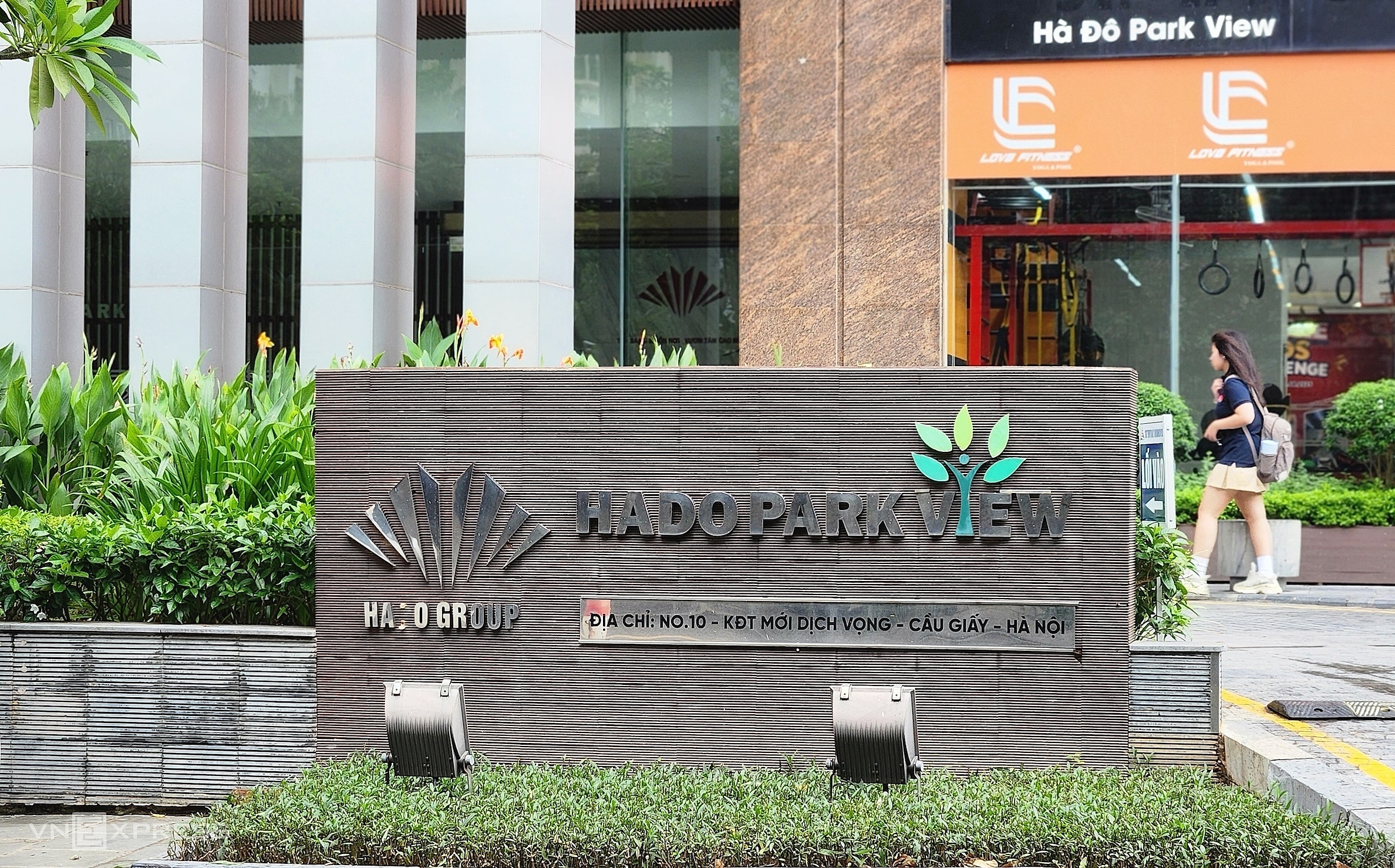 |
Both the residents' committee and the developer claim ownership of the parking area in the building's basement. Photo: Thanh Lam |
Both the residents' committee and the developer claim ownership of the parking area in the building's basement. Photo: Thanh Lam
The plaintiff alleges that the 2024-2027 residents' committee "intentionally altered" signed agreements, leading to security concerns within the building. Starting in December 2024, the residents' committee posted their bank account details on Facebook, urging residents to pay parking fees directly to them.
The plaintiff filed a lawsuit seeking recognition of their ownership of the nearly 4,200 m2 parking area and demanding that the residents' committee cease their infringement and return the collected 62 million VND in parking fees.
According to the ruling, the residents' committee argues that the law designates parking areas, including basement car parks, as common property of all apartment owners.
Under the 2005 Housing Law, areas not privately owned within a condominium (including parking areas) are considered shared property of the residents.
In the apartment purchase contracts, the company defined common areas as including basement parking. The contract also stipulated the company's full ownership, management, and operational rights over areas not designated as common property or sold to residents.
The defendant asserts that the entire parking area on both basement levels is common property of the residents, not under the company's management. The residents' committee therefore deems the demand for returning the 62 million VND in collected parking fees baseless.
They also accuse the developer of illegally occupying common property by operating the basement parking area and collecting fees without handing it over to the residents' committee. The developer, they claim, has no right to operate these two basement levels and must cease their illegal occupation of common property.
The defendant requested the court to dismiss all claims.
 |
Ha Do Parkview, a 34-story condominium in Cau Giay district, faces disputes over basement parking after 10 years of operation – a common issue in many condominiums today. Photo: Thanh Lam |
Ha Do Parkview, a 34-story condominium in Cau Giay district, faces disputes over basement parking after 10 years of operation – a common issue in many condominiums today. Photo: Thanh Lam
In the initial ruling in April, the Cau Giay District People's Court accepted all of the plaintiff's claims. The court recognized the car parking areas on basement levels B1 and B2 of Ha Do Park View as the plaintiff's private property.
The court also ordered the defendant, the residents' committee, to pay the plaintiff 62 million VND, representing the parking fees collected in December 2024.
The residents' committee appealed the entire ruling. At the appellate hearing in early August, the defendant argued that any developer's retention of parking areas must be explicitly stated in the contract. However, the purchase contracts between the company and residents made no mention of the basement parking area belonging to the company.
The residents' committee refuted the developer's claim of not including basement construction costs in apartment prices. According to them, official documents regarding building handover show the original value of the basement area as nearly 17 billion VND. The residents' committee estimates the actual value to be around 75 billion VND.
The defendant argued that the company lacked evidence of retaining this area without selling it or including its cost in apartment prices. There was no ownership certificate, project approval document, design, or administrative decision designating the basement as the developer's private property.
Therefore, the residents' committee asserted sufficient grounds to conclude that the company included the basement construction costs in the apartment prices in 2013.
"The initial ruling relied on a drawing created by the company, which unilaterally divided common and private areas. It had signatures but no official seal from the residents' committee, making it an invalid basis for claiming resident agreement on common and private areas, contrary to legal regulations," the defendant argued, requesting the annulment of the initial ruling.
Meanwhile, the plaintiff maintained their stance, urging the appellate court to reject the residents' committee's appeal and uphold the initial ruling.
The appellate court, referring to Decree 71/2010, stated that while common areas in condominiums, including car parking, must adhere to building codes, the developer decides whether they are designated as common or private property.
"Therefore, the designation of the basement parking area as common or private property is the developer's decision," the court stated.
Based on financial reports and the company's explanations, the basement's value was recorded as an investment property, an asset retained by the company, not sold, and not factored into apartment prices. Therefore, the company has the right to seek legal confirmation of their ownership of the basement parking area.
The court noted that the company's financial reports are publicly listed and legally valid. The residents' committee provided no evidence that the value of the basement parking area was included in apartment prices or that it constitutes common property.
Therefore, the right to manage and collect fees for this area also belongs to the developer. The residents' committee's call for residents to pay parking fees to their account is thus incorrect. "The residents' committee did not manage the parking but retained the collected fees, which is improper. The subsidiary company, authorized by the developer, directly manages the parking, so parking fees should be paid to the plaintiff," the ruling stated.
The appellate court rejected the residents' committee's appeal and upheld the initial ruling. The losing party must pay 124 million VND in court fees.
Thanh Lam







